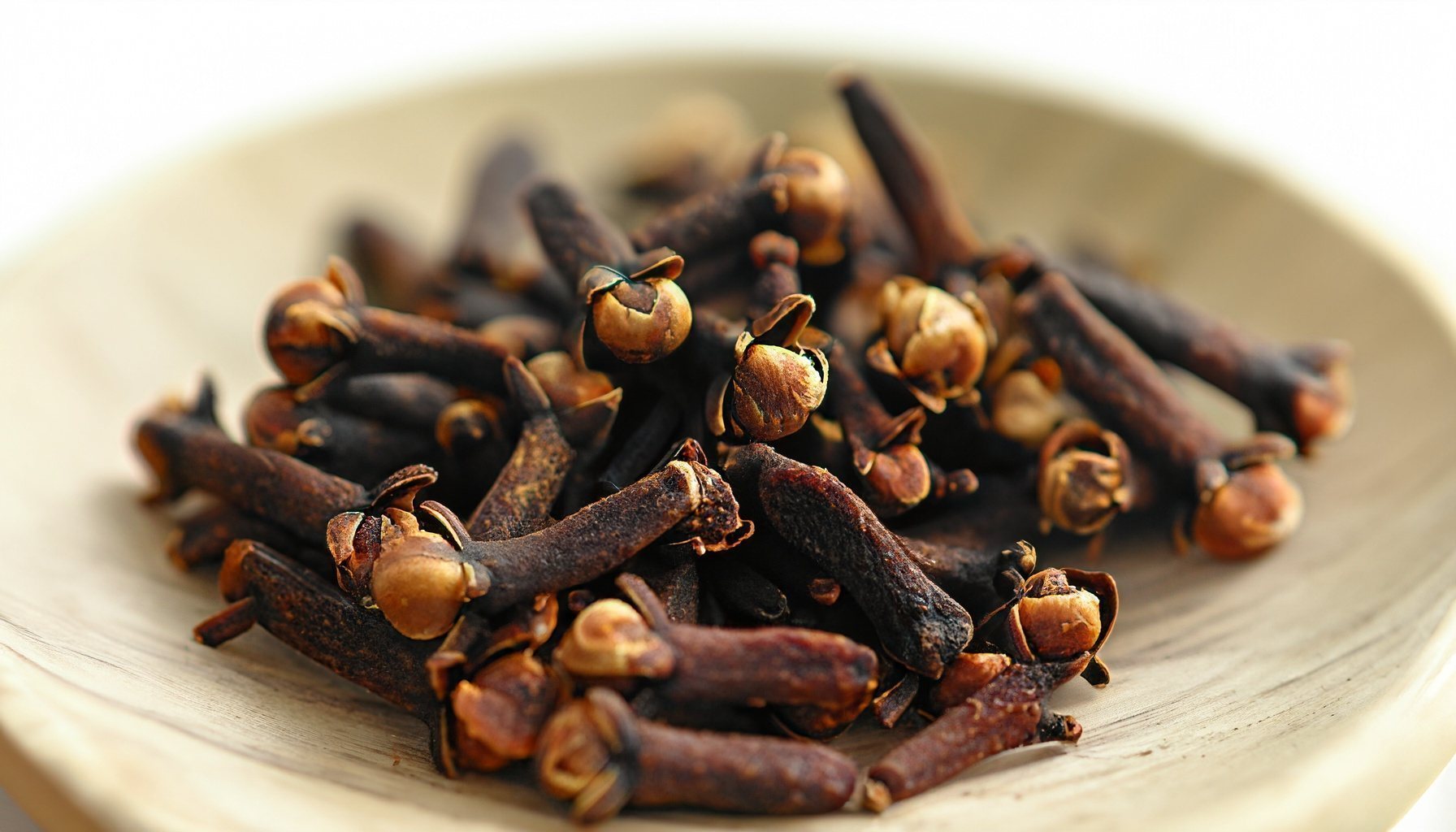
Cloves are the aromatic flower buds of a tree in the family Myrtaceae, Syzygium aromaticum. They are native to the Maluku Islands in Indonesia and have been used as a spice and medicinal herb for thousands of years. From a local spice and medicinal herb in Indonesia and Asia, cloves have spread worldwide, known for their distinct flavor, aroma, and health benefits. Here’s a brief history of cloves:
Ancient Times
- 2000 BC: The earliest record of clove use can be traced back to ancient China. Chinese officials would chew cloves to freshen their breath before speaking to the emperor.
- Ancient Egypt: Cloves were used in Egypt for their medicinal properties and also for embalming, given their strong aromatic nature.
Middle Ages
- 4th Century AD: Cloves began to be traded internationally, making their way to Europe and other parts of Asia via the Silk Road and other trade routes.
- Medieval Europe: Cloves were a prized spice for flavoring food. They were also used in medicine for their antiseptic and anti-inflammatory properties.
Age of Exploration
- 15th – 17th Centuries: The Europeans, especially the Portuguese and Dutch, sought to control the clove trade. The spice was valued highly and was one of the reasons that led to the age of exploration.
- Dutch Monopoly: In the 17th century, the Dutch established a monopoly on the clove trade, going to the extreme of controlling and limiting the cultivation of cloves to one island, to keep prices high.
Colonial Period
- British and French: Both nations challenged the Dutch monopoly, leading to the cultivation of cloves in other parts of the world, like Zanzibar, which eventually became the world’s largest producer of cloves.
Modern Times
- Today: Cloves are grown in various countries around the world, including Indonesia, Madagascar, Tanzania, and Sri Lanka. They are used in cuisines globally, in the production of clove oil, and in traditional medicine.
Medicinal and Culinary Uses
- Medicinal Use: They have been used in traditional medicine for their antimicrobial, antifungal, antiviral, anti-inflammatory, and analgesic properties. Clove oil, in particular, is known for its benefits in dental care.
- Culinary Use: Cloves are a popular spice used in a variety of dishes around the world, including meats, curries, marinades, and hot beverages.
See also: 12 Iconic Natural Aromatics
Written by Tony Bierman
Tony Bierman co-founded Candlecopia, a home fragrance company, in 2009. In addition to being a 15-year veteran of the home fragrance industry, Tony is also an author, an award-winning software developer, and an amateur photographer. In his spare time, you’ll find him hiking the woods of Roanoke Creek, with his camera and his dogs.


[…] Cloves have a warm, sweet, and slightly bitter aroma. They have played a vital role in the spice trade and have been used for their antiseptic and analgesic properties. See also: A History of Cloves […]
[…] Clove: A powerful, spicy fragrance with a warm and woody tone. […]
[…] Clove – Rich and spicy, boosts energy and mental alertness. […]
[…] Clove – Rich and spicy, embodies the warmth of winter gatherings. […]
[…] Clove Bud – Rich, warm, spicy, and sweet. […]